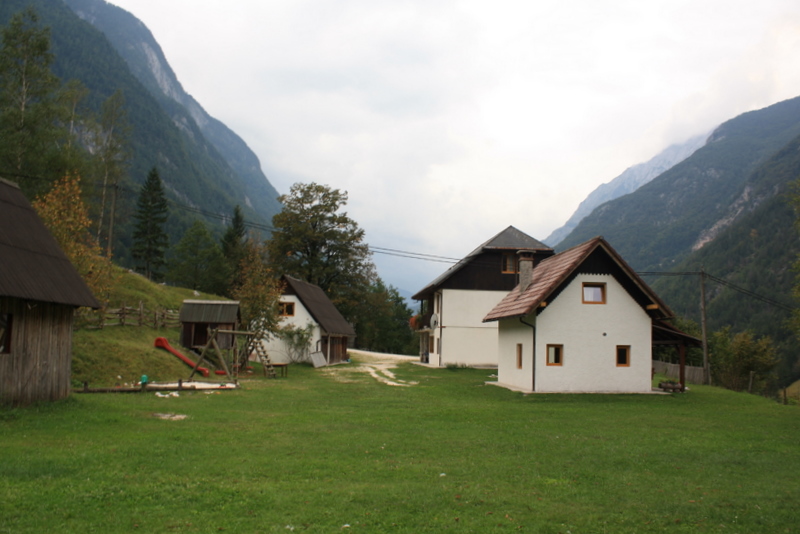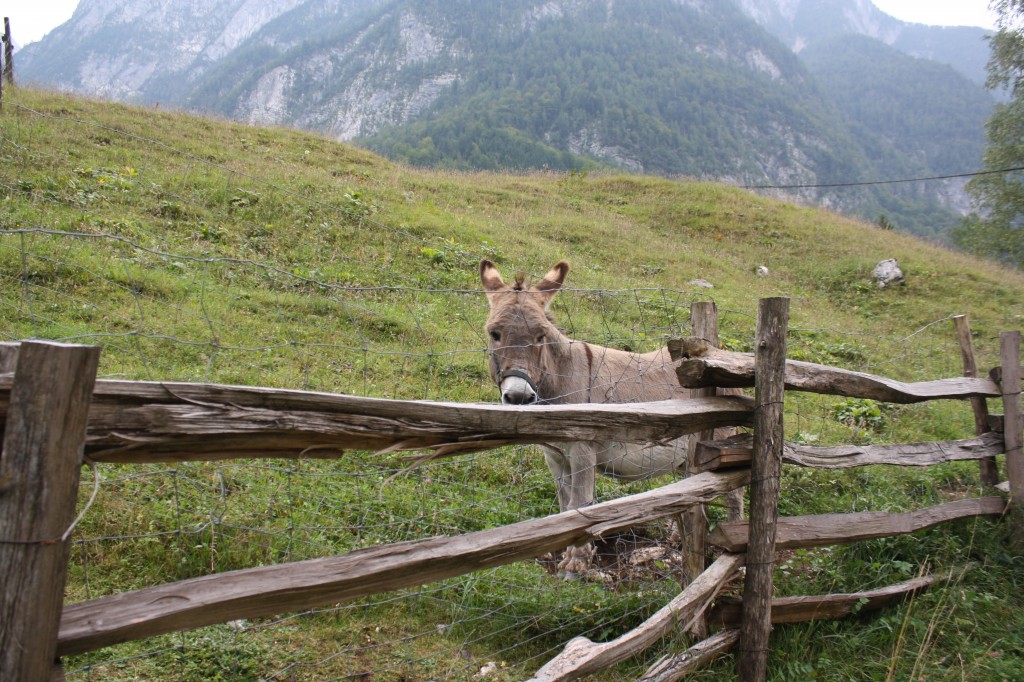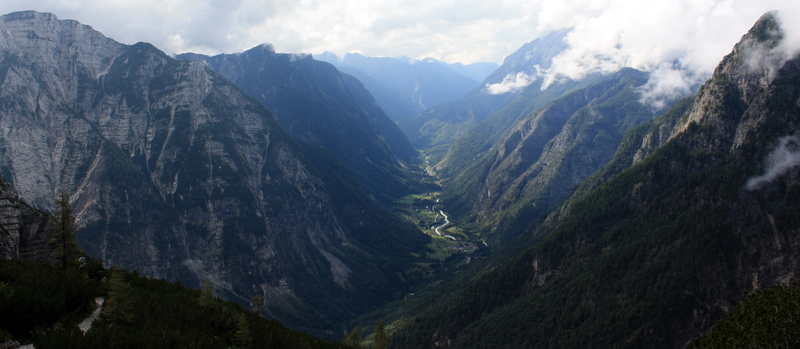September 27th, 2009
Slovenia, Part One
Note: this was drafted with the intention of posting it from the trip, but, well, that didn’t happen. So just pretend this was a live blog…
There’s one significant plus to having a nomadic boyfriend, and that’s that I have a really great excuse to visit some very cool places that I’d otherwise never see. In July, we spent a week in rural Eastern Portugal, just a few minutes from the Spanish border. I regret not blogging about our time there b/c it was magical and it’d be nice to have a record, but we were operating under a pretty strict “no internet” policy that week.
Come September, that whole offline thing is not really an option, so I figure I might as well make some notes about the place while we’re here and online!
I flew into Linz, Austria where David had just finished curating the Ars Electronica Symposium (very proud!). We spent three uneventful days there before heading down to Slovenia.
Our destination was Trenta, Slovenia which is in the middle of Triglav National Park. Google Maps, my new arch nemesis, told us it would take us just under four hours. Well, they must not have accounted for the fact that a Fiat Panda doesn’t do so well on the hairpin S-curve turns of the Vrsic Pass. Not to mention, road names/numbers are not helpful when they’re not marked as such. Luckily, there weren’t many options to take a wrong turn (unless you wanted to plunge to your death off the side of an Alpine peak) so we made it to the farm where we are staying (a “kemetija” or “tourist farm” as they call it here) and met our hosts, Stanka and Marko.

Pri Plajerju, the first farm of the trip
The farm is…pretty farmy. It’s a completely organic farm with all the food served here (we’re doing breakfast and dinner) either homemade (and when I say homemade, I mean bread made from hand-milled flour) or local. My friends at La Vida Locavore would be very proud. Our apartment is literally in the hay loft, which we think is funny. There’s a huge living/dining/kitchen area, and immaculate bathroom with a killer shower, and a gabled bedroom. The silence and darkness has been utterly blissful. We’ve also made friends with the resident donkey, who we lovingly call (b/c we can’t pronounce his Slovenian name) Mr. Donkey.

Mr. Donkey
Our first night here, we ate at the local restaurant, which was decorated with, among other weird kitchscy things, a stuffed beaver with some pretty scary teeth. Brings new meaning to the phrase “stuffed animal.” David had the deer goulash and I had the meat stew. Both were amazing. We traced a path home through the rain lit by David’s iPhone display (I promise I’ll never disparage the thing again) and tucked in for the night, only to be awakened every few hours by booming thunder echoing off the surrounding mountains. So much for that blissful silence, though somehow it’s more peaceful when it’s not your upstairs neighbors doing the booming.
Day two was a complete rainout, but it gave us a chance to see the WW I museum in Kobarid (more on that in a separate post). Stanka cooked us dinner at the farm, which consisted of zucchini soup, the first meatloaf I’ve had in 20 years, a zucchini cream thingamajig (UNBELIEVABLE) and buckwheat/rice pilaf. It was excellent. Because it was my birthday, Marko gave us a few swigs of the homemade cherry brandy (called “the red line” because it makes a direct line from your throat to your tummy).

"The Red Line" homemade cherry brandy
On day three, I woke up at 7am to find the sun shining brilliantly (yes!), so excited that our chances for a hike weren’t ruined. The Triglav Park is so well marked, with such a great diversity of paths. Luckily, we met some German friends who let us borrow their trail map. We decided on a 5-hour trip with ~1500 meters of elevation gain. It was all fun and games until that last climb to the peak. The trail was really rocky and I just had my running shoes. As we speak, my knees are letting me hear it. We crossed a bunch of waterfalls and had some spectacular views of the valley and Soca River. We ate cookies at the lake at the top before heading back down.

View from our Hike
Dinner tonight was prepared by the guys, Marko and Stanka’s cousin. Let’s just say it wasn’t up to the preparation of the night before (a whole pear on a plate as dessert?), though they were much more lenient with the wine. We also met a couple from Brooklyn who are here on their honeymoon and just came from the place we’re headed tomorrow.
After another fabulous breakfast, we’re off to the Karst region, just across the border from Italy. There will be spelunking and lots of winetasting to be done. More soon!


